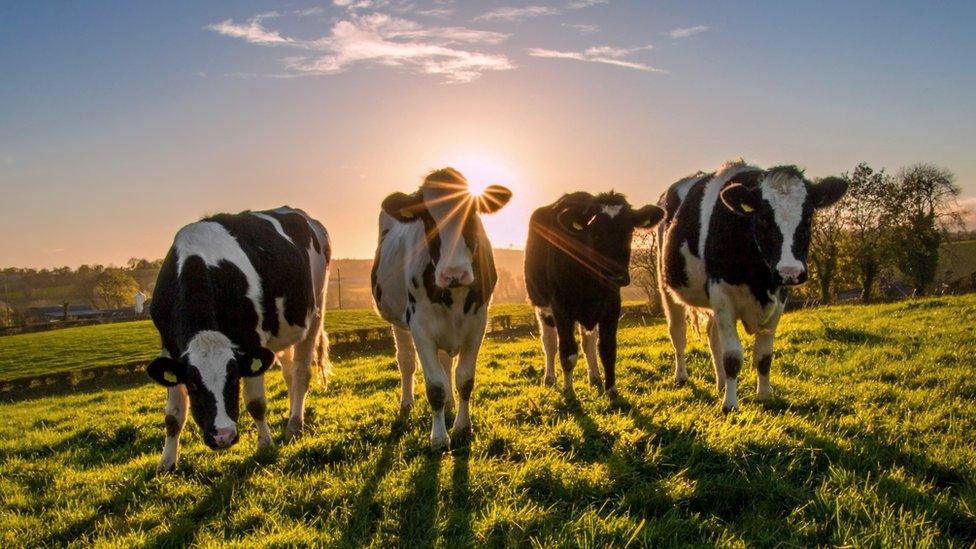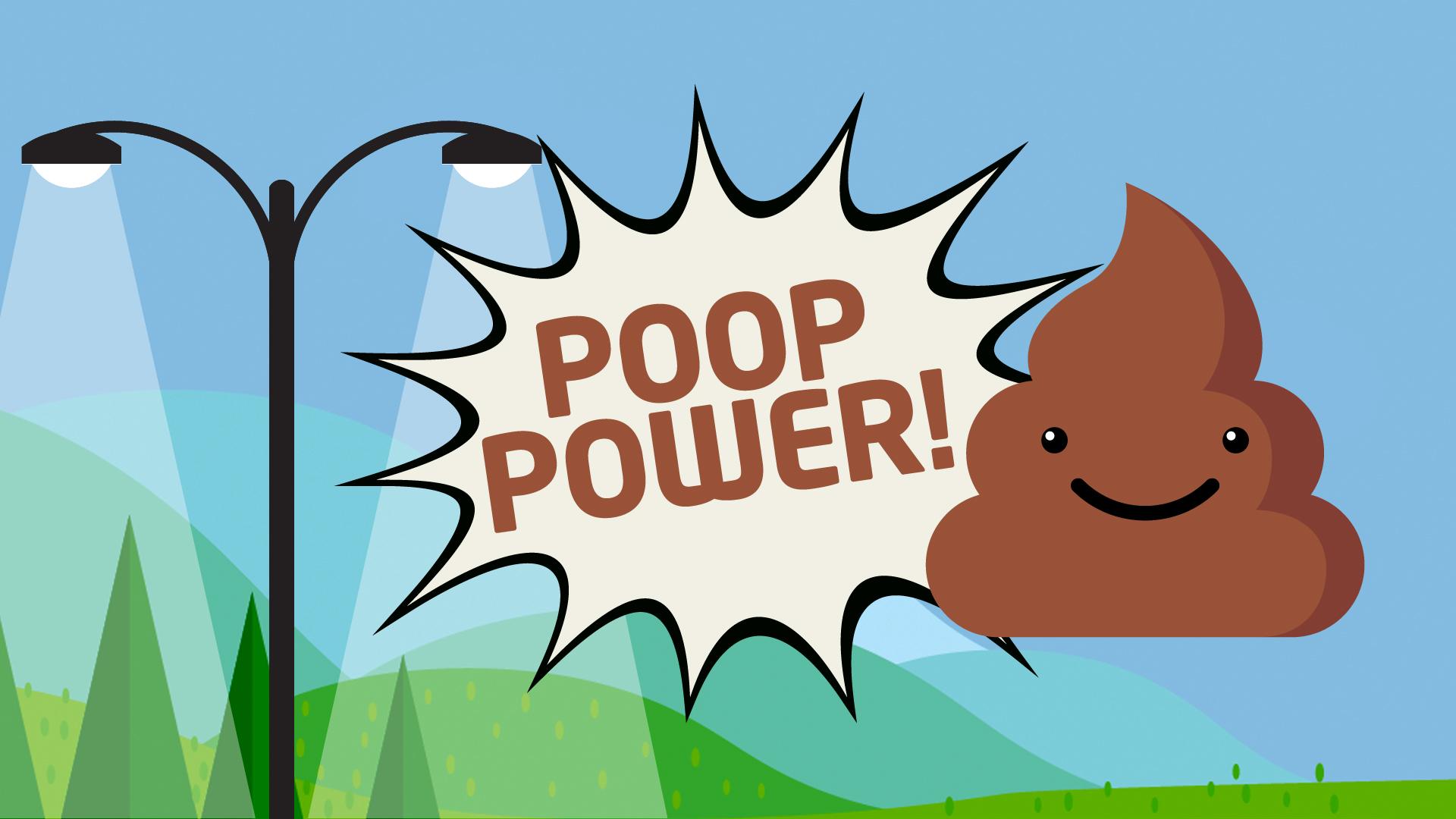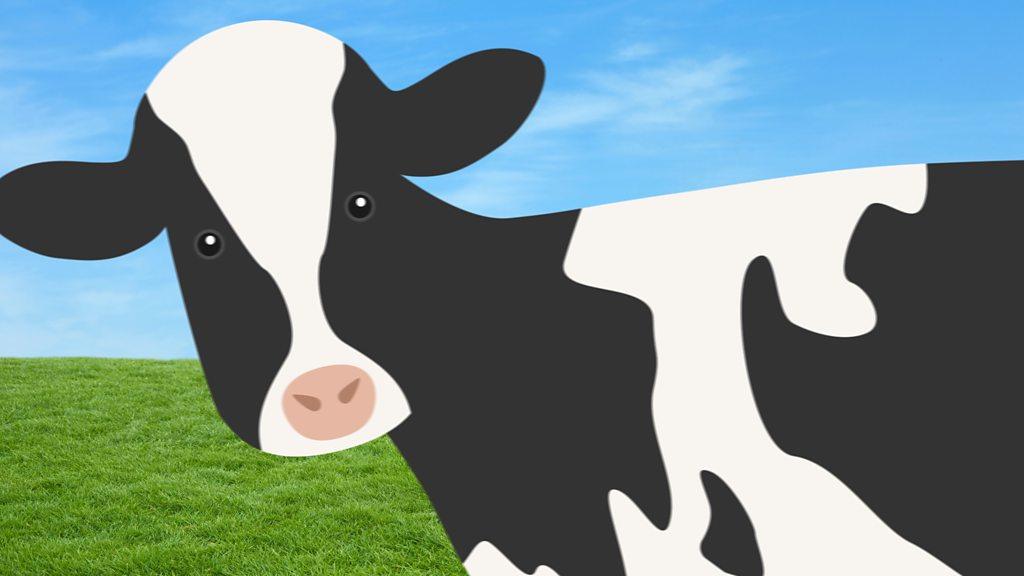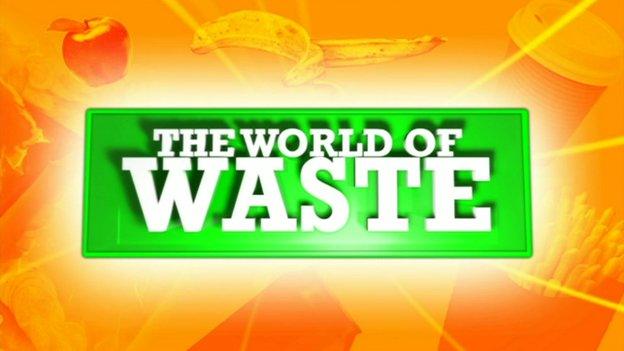Climate change: How 'poo power' could help milk farmers cut climate impact
- Published
- comments

Dairy farmers in the UK are trying out new ways of cutting the impact their work has on the climate, including trialling 'poo power' to fuel milk tankers.
They're also monitoring cow health by using Fitbit-like collars, according a new report.
It's been published by farmer-owned co-operative Arla and looks at the carbon footprint of milk using independently assessed data from 1,964 UK farms.
Arla hopes the report will help the co-operative meet its target for a 30% cut in emissions per kilogramme of milk at farm level by 2030. There is also the ambition to become carbon net zero across the supply chain by 2050.
The main sources of emissions for the raw milk produced on Arla farms are cow digestion and the methane they burp out, as well as how and where the livestock feed is produced.
Other sources of greenhouse gases are manure handling, energy production and use, and emissions from peat soils, according to the report.
The average carbon footprint of milk from Arla farms is 1.13kg of emissions per kilogramme of milk, slightly less than the UK dairy farm average and around half the global average of 2.5kg of emissions, according to the analysis.
Measures farmers can take, and are already taking, include reducing the amount of protein that cows eat as well as making sure they are healthy and happy.
The report says healthy, contented cows make milk production more efficient which in turn lowers emissions.
Farmers are using technology such as Fitbit-like collars or ankle bracelets, as well as sensors that pick up and analyse behaviour to check on welfare.
If we want more biodiversity, fewer emissions through natural processes and a reduced reliance on ultra-processed foods, then the only answer is to support British farmers, who already have many of the answers, but not always the financial resources to implement them.
Another idea is using cow pats for energy - that's 'poo power' or bio-gas from slurry being used as a fuel for tankers.
Alice Swift, agriculture director for Arla Foods, said: "Dairy can and should be part of a sustainable diet and our new report is a major step forward in demonstrating just how much action is already under way across Arla farms as we move towards carbon net zero dairy production.
"All food production creates emissions, but our farmers are stepping up to help with the climate and environmental crisis we face."
- Published11 January 2018

- Published11 October 2019

- Published18 June 2013

